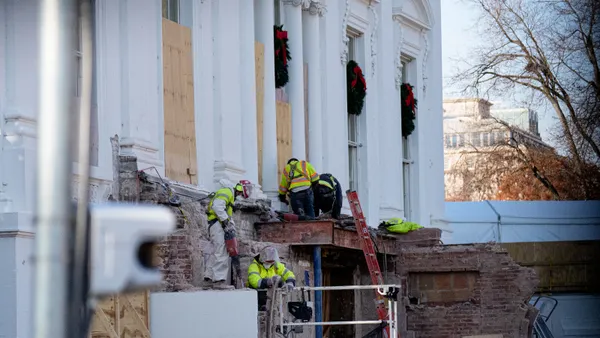Dive Brief:
- A Vancouver, B.C., judge sentenced a city real estate developer, Michael J. Knight, to one year in prison for allegedly bilking investors in a condominium scam and breaking real estate and securities laws, CBC News reported.
- Knight took in millions, at $100,000 per investor, for the 2006 development of green-technology condos, but only one-third of the project was built, and investors lost all or part of their money during the 2008 recession, according to the judge.
- Knight, who was banned from trading in securities or providing real estate services prior to seeking investments in the condo project, tried unsuccessfully to convince the court that his investors were fellow developers and that the condos were not securities.
Dive Insight:
Knight's partner, Jeffrey Wiegel, pleaded guilty in exchange for a suspended sentence and no jail time, and Knight argued to the court that his punishment should be similar. However, the judge said that Knight's crimes weren't on par with Wiegel's and that Knight's incarceration would serve as a warning and deterrent to others considering the same type of con.
Developer fraud has been an ongoing concern in the industry. In March, Texas homebuilder and developer Dean Buescher pleaded guilty to conspiracy to commit mail fraud for his part in a 2007 recession-era housing scam in which he arranged for "straw buyers" to purchase his homes at inflated prices so that he could pay back development loans. Seven other Texas developers were found guilty and sent to prison for these "builder bailouts" as well.
Also in March, Chicago real estate developer Laurance Freed was convicted of mail fraud, bank fraud and making false statements to financial institutions in his efforts to obtain credit when his company was struggling financially. Freed allegedly siphoned money off of other projects and double-pledged bonds as collateral for loans in order to fund the redevelopment of a city department store. He faces more than 200 years in prison.
Kroll's 2015 Global Fraud Report, released in November, found that 74% of construction, engineering and infrastructure companies experienced some sort of fraud-related incident in 2015. Fraud rates for the construction industry were only exceeded by retail. Physical theft was the most prevalent form of construction fraud, while procurement fraud ran a close second.












